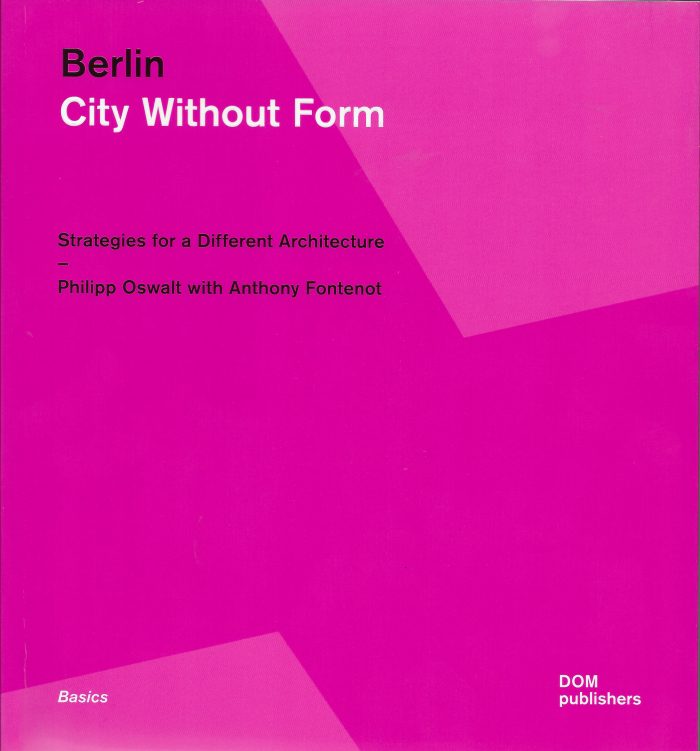WSOA Professor Offers Insight on Design & Architecture Forces Shaping Berlin — and Beyond
 Berlin: City Without Form: Strategies for a Different Architecture (DOM Publishers, 2021)
Berlin: City Without Form: Strategies for a Different Architecture (DOM Publishers, 2021)
More than any other metropolis worldwide, Berlin was shaped by the events of the 20th century through a process called “automatic urbanism.” The city absorbed the forces of that epoch — including modernity, fascism, two world wars, Stalinism, socialism, the Cold War, revolt, capitalism, and more — and gave them form.
Co-authored by Philipp Oswalt, professor of theory of architecture and design at Germany’s Universität Kassel, and Anthony Fontenot, professor at Woodbury School of Architecture, Berlin: City Without Form takes a deep dive into an examination of the far-reaching impact of these influences. Leveraging their unique perspectives, the authors reveal how the city’s opposing ideological, political, economic, and military forces continue to uncover the rich potential of unplanned structures, activities, and urban phenomena beyond the categories of urban design and architecture.
Causing a sensation when first published in German more than two decades ago*, this book was recently translated and published in English for the first time.
The authors examine Berlin as a model for illustrating how phenomena like conglomeration, collision of borders, destruction, void, mass, metabolism, and simulation have shaped 20th century urban development in other cities, as well. The book’s surprising and informative analysis of Berlin as a prototype of the modern city destroys the ideologies of heroic modernity and the new nationalism, and shows how the modern city “as found” can become the point of departure for new forms of context-specific architecture and urban planning.
*Originally published as Berlin, Stadt ohne Form: Strategien einer anderen Architektur (München: Prestel Verlag, 2000).
______________________________
WHAT EXPERTS ARE SAYING
Saski Sassen, Columbia University, New York
“Taking Berlin as a prototype, Philipp Oswalt’s lucid analysis describes how much the built environment of cities is influenced by the unintended side-effects of political, economic, and technological processes. This ‘automatic urbanism’ reveals modernist master-planning and national building traditions as being a myth. Instead, the book offers a both socially and ecologically more sensitive, more responsible approach to develop cities ‘as found.’”
Reinhold Martin, Columbia University, New York
“This English edition of Philipp Oswalt’s now-classic study could not be more timely. Every effort to understand the modern city must contend with Berlin, the twentieth century’s anti-capital. Its lessons, presented here with singular insight and authority, remain necessary to anyone thinking about what that word – ‘city’ – might mean today.”
Eyal Weizman, Goldsmiths/University of London
“Berlin has never only been a theatre in the battle between ideas and ideologies. Rather, it has always been the material means by which these ideas clash against each other. If the struggle for our futures must take place in Berlin, as our historical moment seems to demand, there is no better guide than Philipp Oswalt’s now classic Berlin: City Without Form. His scholarly ingenuity and perceptive architect’s eye are only matched by a commitment to the future of his city.”
Last Updated September 19, 2022.